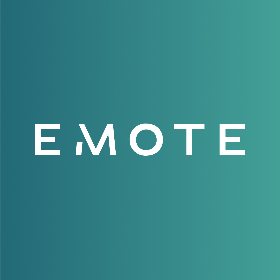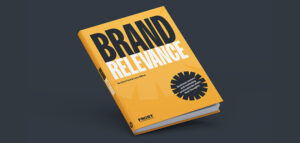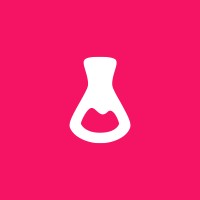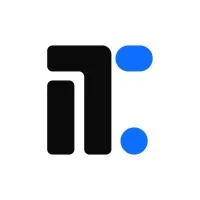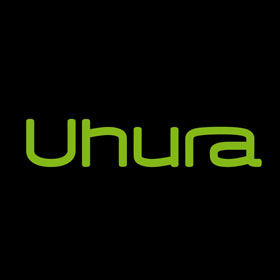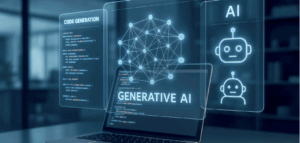
What Is an AI Automation Agency and Why Is It Important for the Marketing World?
Are you questioning what sets an AI automation agency apart from traditional marketing partners? Or wondering how these agencies can genuinely drive growth for brands and marketers in 2025 and beyond?
As artificial intelligence solidifies its position at the center of digital strategy, understanding the practical role and value of an AI automation agency is now a top priority for the entire marketing ecosystem.
Knowing precisely what an AI automation agency is (and what it is not) forms the basis for informed decisions about digital partnerships, investments, and future-proofing your marketing operations.
Transitioning from curiosity to clarity, let’s examine the fundamentals.
What’s Inside
- What is an AI Automation Agency?
- Core AI Automation Agency Services
- Why Work with an AI Automation Agency?
- How to Choose the Right AI Automation Partner
- How Much Does AI Automation Services Cost?
What is an AI Automation Agency?
An AI automation agency, at its core, is a specialized automation agency that designs, develops, and deploys autonomous systems (known as AI agents) to mechanize key marketing tasks, streamline related operations, and drive business results.
Okay, what sets these agencies apart?
AI automation agency services center around building and integrating intelligent agents capable of handling campaign reporting, content generation, data analysis, and customer engagement without manual intervention.
Unlike basic automation tools or chatbots, an AI automation business creates digital assistants that understand intent, make decisions, and act on behalf of users.
Given that 80% of businesses utilize generative AI, more than 80% report no discernible impact on their bottom line, underscoring the necessity of professional advice and tailored integration. Additionally, AI automation firms enter the scene.
So, can we say that AI automation agency services are now essential?
Considering above mentioned these realities, agencies, brands, and marketers can no longer afford to view AI automation agency services as optional or experimental. Instead, these services are quickly becoming the backbone of modern digital marketing strategies.
Defining AI Automation in a Business Context
AI automation, in the business context, is not simply the replacement of repetitive manual processes with software.
Instead, it refers to the implementation of intelligent agents; systems that perceive, analyze, decide, and act autonomously based on data and real-world inputs.
Need more info?
Key features of AI automation:
🧠Learning from data:
AI automation agents do not operate from fixed scripts. They learn from historical and real-time data, adapting strategies and decisions as new patterns emerge.
🧠Autonomous decision-making:
These agents can interpret complex signals, such as shifting market trends or individual customer behaviors, and autonomously trigger actions (e.g., adjust ad spend, change creative assets, send personalized communications) without waiting for human approval.
🧠Contextual understanding:
Modern AI models, such as GPT-4 and similar language models, can interpret nuanced intent, sentiment, and unstructured data, enabling automation far beyond simple rules or keywords.
🧠Integration across functions:
McKinsey’s abovementioned report says that 78% of organizations use AI in at least one business function, including marketing, sales, and customer support, showing how AI automation is not siloed but cross-functional.
Let’s continue with an example: A retailer may deploy an AI automation system to analyze website visitor data, predict which visitors are likely to buy, personalize website content for each segment, and trigger targeted follow-up campaigns. All with minimal ongoing human intervention.
So, why does this matter for the marketing world?
AI automation supports rapid experimentation, real-time personalization, predictive analytics, and proactive campaign management, fundamentally shifting how marketing objectives are achieved.
What Makes an Agency an “AI Automation Agency”?
Not every agency using AI qualifies as an “AI automation agency.” This distinction is crucial for brands and marketers evaluating potential partners.
Defining characteristics of an AI automation agency:
| Characteristic | Description |
| AI-first approach | The agency is structured around building, deploying, and maintaining intelligent agents and AI tools. |
| Custom AI integration | Solutions are tailored: from GPT-based chatbots to predictive analytics engines, not just “out-of-the-box” tools. |
| Strategic AI governance | The agency establishes frameworks for ethical, transparent, and results-focused AI deployment. |
| Continuous optimization | Campaigns, content, and insights improve automatically as AI learns from new data and market signals. |
| Cross-platform orchestration | The agency can connect multiple data sources, CRM systems, ad platforms, and analytics, allowing AI agents to act across the marketing stack. |
| Human oversight, AI execution | Humans focus on strategy, creative direction, and governance; AI handles daily decision-making, campaign execution, and optimization. |
And why does this matter?
Traditional agencies may adopt AI for isolated use cases like AI-generated copy. An AI automation agency instead delivers integrated, continuously learning systems that touch every stage of the customer journey; such as creating a good advantage for brands and marketers willing to invest in true digital transformation.
AI Automation Agency vs. Traditional Automation Agencies
As brands and marketers weigh the choice between an AI automation agency and a traditional automation provider, it is critical to understand the underlying differences; not just in technology, but in the impact on marketing outcomes, efficiency, and innovation.
When comparing an AI automation agency to a traditional automation provider, the differences begin with their foundational technology and approach. An AI automation agency builds its solutions around advanced machine learning models, such as natural language processing, and adaptive frameworks.
These agencies deploy intelligent agents capable of not only automating tasks but also understanding customer intent, adapting content, and making real-time decisions across multiple channels. For example, an ai agency partnered with a consumer brand to launch thousands of localized ad campaigns that adjusted their messaging and targeting on the fly, based on live conversion and engagement signals.
Traditional automation agencies, on the other hand, tend to rely on rules-based workflows, scripts, and robotic process automation. Their core function is to make repetitive tasks more efficient, such as scheduling social posts, sending emails, or automating reporting.
While these solutions can bring significant operational efficiencies, they lack the flexibility and intelligence to adapt to new information in real time. If customer preferences or market trends change, traditional automation systems require manual intervention to update campaign logic, creative, or targeting parameters.
Another critical difference lies in personalization and optimization. AI automation agencies enable brands to offer hyper-personalized experiences at scale, with content, offers, and timing that automatically adjust for each customer or segment as the AI agent learns.
In contrast, traditional automation agencies typically segment audiences into predefined groups and use static content or scheduled communications. What’s more, these agencies, by comparison, are dependent on periodic manual reviews to adjust or improve campaigns.
Finally, while both agency types aim to deliver efficiency, only AI automation agencies are positioned to unlock true digital transformation, drive sustainable growth, and give marketers the agility to keep pace with rapidly evolving market conditions.
With these distinctions in mind, the next section will focus on the core services offered by modern AI automation agencies, and how these offerings help brands and marketers achieve not just efficiency, but true differentiation and competitive advantage.
Core AI Automation Agency Services
As we mentioned before, the true value of an AI automation agency lies in its ability to deliver advanced technology and practical solutions that directly improve marketing performance, customer experience, and business outcomes.
Thinking of starting an AI automation agency—or just want to know what services it provides?
Below are the core services that define leading agencies in this field.
AI-Powered Content Creation and Personalization
An AI automation agency takes advantage of NLP and ML to generate dynamic, personalized content across channels such as web, email, social, and more. These systems can draft campaign copy, tailor product recommendations, adapt visuals, and even create video scripts, all in real time.
- Personalization can improve user satisfaction, conversion rates, and retention.
- AI-driven segmentation goes beyond demographic data, factoring in real-time intent and cross-channel behavior.
Ad Optimization and Programmatic Advertising
AI-powered platforms enable agencies to automate media buying, audience targeting, and creative optimization.
Programmatic ad uses machine learning to dynamically adjust bids, placements, and creative based on performance signals.
- Automated A/B testing continuously refines creative and placement choices.
- Programmatic solutions allocate budget more efficiently and reduce manual oversight.
Predictive Analytics
Agencies rely on AI-powered analytics to anticipate consumer trends, forecast campaign results, and guide strategic planning. Predictive modeling enables brands to proactively identify opportunities, manage risks, and optimize spend.
Predictive insights are essential for marketers looking to maintain a competitive edge by acting on emerging data, not just historical trends.
- Predictive analytics is used for churn prediction, demand forecasting, and product recommendations.
- Agencies translate complex data into actionable insights for real-time decision-making.
Dynamic Content Creation
Automation accelerates content workflows by generating copy, imagery, and even video assets through AI. Agencies use tools such as GPT-based language models, automated video editors, and AI image generators to deliver scalable, personalized creative.
This allows brands to rapidly adapt messaging, test new concepts, and maintain consistency across channels, all while reducing production costs and manual effort.
- Automated content creation supports high-volume campaigns, such as email marketing, social media, and ad creatives.
- Dynamic creative optimization (DCO) ensures content remains relevant by adapting in real time to audience signals.
Why Work with an AI Automation Agency?
What’s the real value for brands and marketers in partnering with an AI automation agency, rather than going it alone?
Another question: Are we ready to compete where innovation is the rule, not the exception?
The evidence is in; relying on traditional, manual approaches puts brands at real risk of falling behind.
👉🏻First, the sheer complexity of modern marketing can’t be handled with manual processes alone. When information overload leads to analysis paralysis, mistakes happen and opportunities slip away.
Agencies specializing in AI automation solve this by implementing streamlined, data-driven systems that cut through the clutter and provide clarity for every campaign decision.
👉🏻Second, measurable performance gains are real. Agencies bring proven frameworks and the technical expertise needed to activate these tools, so you see more efficient spend, faster optimizations, and reliable returns.
👉🏻Scalability matters, too. As McKinsey notes, almost half of all paid work activities globally have the potential to be automated. But less than 5% of jobs can be fully automated.
This means that agencies excel at amplifying human teams, automating repetitive tasks so your experts can focus on strategy, creativity, and relationship-building. In other words, the work that can’t be replaced by software.
👉🏻Finally, AI automation agencies invest in cutting-edge technology and continuous learning so their clients always benefit from the latest advancements.
As we mentioned above, the right agency reacts to trends, anticipates them, and positions brands as a leader rather than a follower.
And, as McKinsey Global Institute highlights, automation “enables businesses to reduce errors, improve quality and speed, and, in some cases, achieve outcomes that go beyond human capabilities.”
By working with an agency specializing in AI, brands benefit from established frameworks that help prevent costly mistakes and ensure regulatory compliance.
How to Choose the Right AI Automation Partner
So far, we’ve focused on why marketers & brands hire an AI automation agency. Now, let’s outline the key steps for making an informed choice.
Here’s how to approach this decision:
1. Validate Proven Success with AI Solutions
- Request case studies and real client references from the automation agency that showcase their results in AI automation.
- Review detailed before-and-after metrics that illustrate how the agency helped brands start an AI initiative and achieve business outcomes.
- Verify concrete gains, such as a measurable increase in productivity or improved lead generation, not just general claims.
- Examine statistics, for example, “boosted qualified leads by 50%” or “increased campaign efficiency with targeted AI solutions.”
2. Ensure Deep Knowledge in AI Automation
- Confirm that the automation agency employs AI automation specialists and data scientists with technical depth.
- Investigate the agency’s history of deploying advanced AI solutions for a range of business needs, such as automating lead generation or workflow processes.
- Ask about their investment in research, development, and best practices for AI automation.
- Assess how well they understand the unique productivity and compliance challenges in your sector.
3. Demand a Transparent Approach
- Expect open communication on how the automation agency will start an AI project for your organization.
- Ask for a detailed project plan covering each phase of AI automation, including integration with your existing tools and lead generation systems.
- Request clear timelines, deliverables, and success metrics aligned with your objectives to increase productivity.
- Insist on full transparency about the AI solutions and algorithms used—no “black box” methods.
4. Prioritize Data Security and Compliance
- Check that the automation agency follows robust data security practices and complies with all relevant regulations when deploying AI automation.
- Question how your operational and customer data will be protected, especially in lead generation workflows.
- Request written documentation of compliance and certifications related to their AI solutions.
- Verify that their data handling practices are suitable for any industry-specific requirements.
5. Customize Solutions for Productivity and Lead Generation
- Avoid one-size-fits-all platforms & seek an automation agency that will tailor AI solutions to fit your unique business goals.
- Clarify how their approach will specifically help you increase productivity and streamline lead generation through targeted AI automation.
- Choose a partner that develops scalable solutions capable of growing with your business and evolving AI needs.
- Discuss your goals to start an AI initiative that produces measurable business impact.
6. Commit to Ongoing Partnership and Improvement
- Select an automation agency that provides ongoing optimization and proactive support, not just initial implementation.
- Ask how they will monitor your AI automation performance, adapt solutions as your lead generation goals change, and drive continuous improvement.
- Confirm they will be a long-term partner dedicated to helping you increase productivity and maximize value from your AI solutions.
Following these steps will help you choose an automation agency with proven experience, technical strength, and a clear commitment to delivering AI solutions that help you start an AI project, increase productivity, and scale lead generation.
Next, we’ll look at how much it costs to hire an ai automation agency.
How Much Does AI Automation Services Cost?
As you already predict, the cost of hiring an AI automation agency varies widely based on the complexity of the project and the experience of the agency about to be chosen.
However, we can state that those who are looking to hire an AI initiative with standard automation tasks such as simple chatbot deployment or foundational workflow automation, monthly fees generally begin around $2,000 to $6,000. This entry-level range is typically suitable for businesses seeking to increase productivity with straightforward, well-defined AI solutions and lead generation processes.
For more sophisticated needs, such as integrating AI automation across multiple channels, developing advanced analytics, or requiring customized workflow solutions, the monthly investment usually falls between $6,000 and $20,000. At this tier, you can expect a higher degree of personalization, more robust support, and access to a wider range of tools tailored to your unique requirements.
When it comes to large-scale, enterprise-grade AI solutions, costs may reach $20,000 to $50,000 or more per month. This range covers end-to-end automation agency services including predictive modeling, multi-channel campaign automation, comprehensive data integration, and dedicated support teams. Agencies operating at this level deliver highly specialized strategies that often drive significant increases in productivity and lead generation for complex organizations.
For a deeper dive into current industry pricing, along with examples from leading providers, consult the Digital Agency Network’s AI Agency Pricing report.
FAQ about AI Automation Agency
What is an AI Automation Agency?
An AI automation agency is basically a shortcut to getting things done faster and smarter without writing code. These agencies use tools like Make, Zapier, and ChatGPT to automate repetitive tasks, connect the apps, and set up AI-powered workflows that actually save people time. It’s perfect for businesses that want to see results fast, not months down the line.
What are the AI Automation Agency Services?
Think of it as a done-for-you setup where all the boring, manual work gets handed over to AI. These agencies build systems that automate lead capture, customer follow-ups, task assignments, and even chatbot conversations, all using tools you probably already know. They’re not building new apps from scratch; they’re just making what you have smarter and faster.
Why work with an AI Automation Agency?
If your team is constantly copy-pasting data or juggling too many disconnected tools, an AI automation agency can simplify everything. They make the systems talk to each other, free up time, and bring AI into your workflow without the tech headache. It’s like hiring a systems thinker who knows exactly where to waste time.
How Much Does AI Automation Services Cost?
AI automation pricing can vary significantly, most projects land between $500 to $5,000, depending on what you need automated. If it’s a quick fix like syncing your CRM and calendar, you’re probably on the lower end. But if you want a full workflow set up with AI-generated messages or multi-platform automation, you’ll be closer to the higher side. Still, it’s a fraction of the cost of hiring devs or building tools from scratch.





